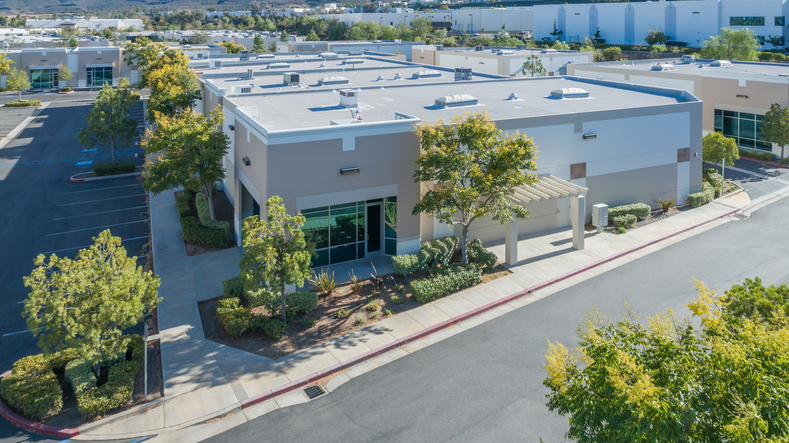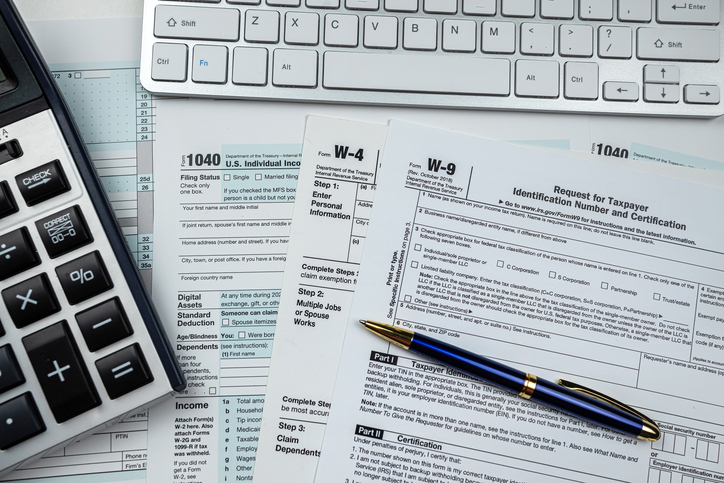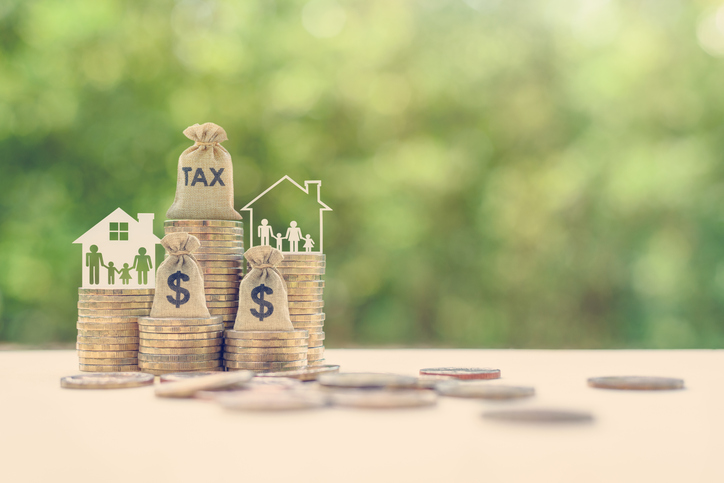Commercial Property Tax Implications in a Cooling Industrial Market

The industrial market, once a hotbed of activity and growth, is experiencing a notable cooling trend. This shift is primarily due to a combination of rising interest rates, decreased demand, and maturing leases and debt. Understanding the commercial property tax implications of this cooling industrial market is crucial for property owners and tenants alike. As the market adjusts, the financial landscape for commercial and industrial properties is set to change significantly, impacting property tax assessments and overall property values.
Understanding the Cooling Industrial Market
The industrial market, which has been a robust performer in the commercial real estate sector, is now facing a cooling trend. This trend is marked by a slowdown in deal flow and a shift in asset pricing, particularly impacting office properties and other commercial real estate sectors.
Factors Contributing to the Cooling Trend
Several factors are contributing to this cooling trend:
- Rising Interest Rates: Over the past two years, there has been a significant increase in interest rates. This rise has made financing more expensive, thereby reducing the volume of deals and investments in the industrial market.
- Decreased Demand: The demand for office space has particularly declined, exacerbated by factors such as remote work and changes in business operations. This decrease in demand is not limited to office spaces but is also impacting the broader industrial property sector.
- Maturing Leases and Debt: Many properties are facing the challenge of maturing leases and debt. Property owners are finding it increasingly difficult to renew leases at favorable terms or refinance debt at previously low rates.
Understanding these factors is essential for navigating the current market and anticipating changes in commercial property tax and industrial property tax assessments. As property values fluctuate, so too will the property tax for industrial properties, potentially leading to increased financial burdens for property owners and tenants.
Commercial Property Tax: Key Implications
Commercial property tax is calculated based on the assessed value of the property, which is determined by local tax assessors. The assessed value typically considers factors such as the property’s market value, income generated, and the cost approach, which looks at the replacement cost of the property minus depreciation. Once the assessed value is determined, it is multiplied by the local tax rate to calculate the annual property tax owed.
Influence of Market Changes on Tax Assessments
Market changes, such as declining property values, can significantly influence tax assessments. In a cooling industrial market, the decrease in demand and transaction volume often leads to lower property values. This, in turn, should theoretically result in lower commercial property tax assessments. However, the reality can be more complex, as tax assessors may take time to adjust assessments to reflect current market conditions.
For example, in areas where the industrial property tax is a significant revenue source for local governments, assessors might be slower to lower assessments, resulting in property owners paying higher taxes than the current market value would justify.
Potential Impact on Commercial Property Taxes
To illustrate the potential impact, consider a commercial property that was assessed at $10 million during a market peak. With a local tax rate of 2%, the annual commercial property tax would be $200,000. If the market value declines by 20%, the property’s assessed value should drop to $8 million, reducing the tax bill to $160,000.
However, if the reassessment lags, property owners could still be paying taxes based on the $10 million valuation, resulting in an overpayment of $40,000 annually.
Effects on Industrial Property Tax
The cooling industrial market has specific implications for industrial property tax. As the market cools, local governments are likely to reassess industrial properties to reflect the decreased demand and lower market values. However, the process of reassessment can lead to significant changes in tax bills, often resulting in increased property tax assessments due to previously rising values catching up with reassessments.
Reassessments Leading to Higher Tax Bills
For instance, an industrial property in New Jersey may have been assessed at $50 million, with a local tax rate of 2.44%. This results in an annual tax bill of $1.22 million. Suppose the property’s value increases by 70% over a few years due to high demand, making the new value $85 million. If the reassessment happens now, the new tax bill would be $2.07 million, an increase of $850,000 annually. This sharp increase in industrial property tax can significantly strain property owners and tenants, especially in net lease arrangements where tenants reimburse property taxes.
In regions with high property tax rates, such as Middlesex County, New Jersey, these reassessments can lead to substantial financial burdens. According to a report by Savills North America, industrial real estate values have risen more than 70% across 11 major North American markets in the past five years. As local governments “catch up” with their tax assessments, the resulting higher tax bills could decrease the affordability of industrial spaces, ultimately impacting demand and market stability.
Challenges for Property Owners and Tenants
The cooling industrial market has brought about significant financial strain on property owners, primarily due to rising property tax assessments. As local governments adjust property values to reflect previous market peaks, property owners are faced with unexpectedly high commercial property tax bills. These increases can be especially burdensome for owners who are already dealing with reduced rental income and higher operational costs.
Tenants, particularly those in net lease agreements, where they are responsible for reimbursing property taxes, are also feeling the pressure. In these agreements, tenants must cover the property tax costs, which can drastically increase when assessments rise. This can lead to higher operational expenses for tenants, making industrial spaces less affordable and potentially reducing demand for such properties.
Case Study: Middlesex County Industrial Property
Consider an industrial property in Middlesex County, New Jersey. Previously assessed at $50 million with a local tax rate of 2.44%, the annual property tax was $1.22 million. Due to the high demand, the property’s value increased by 70%, reaching $85 million. After reassessment, the new annual tax bill became $2.07 million, an increase of $850,000. In a net lease arrangement, this significant tax hike would be passed onto the tenant, leading to higher costs and potentially forcing them to reconsider their lease terms or relocate to more affordable areas.
Strategies for Managing Property Tax for Industrial Property
One of the most effective strategies for managing rising property taxes is to conduct regular property tax assessment reviews. Property owners should ensure that their assessments accurately reflect current market conditions. If discrepancies are found, they should take immediate action to address them.
Filing Tax Appeals
If a property tax assessment is deemed unfair or inaccurate, filing a tax appeal can be a viable option. Property owners and tenants responsible for property taxes can challenge the assessment to seek a reduction. The appeals process involves presenting evidence that supports a lower property value, such as recent appraisals or market data.
Tax Relief Options and Incentives
In some regions, there are tax relief options and incentives designed to ease the burden of high property taxes. For example, New Jersey offers Payment in Lieu of Taxes (PILOT) programs. These programs allow developers to negotiate a fixed-term payment that is lower than standard property taxes, incentivizing urban infill development. Property owners should explore such programs to see if they qualify for any tax relief benefits.
The Role of Local Governments
Local governments play a crucial role in shaping the commercial property tax landscape, especially in response to the cooling industrial market. In major markets like New Jersey, policymakers are implementing various measures to address the shifting economic conditions and their impact on commercial and industrial property owners.
Tax Policy Changes in Major Markets like New Jersey
In New Jersey, for example, local governments have responded to the cooling industrial market by adjusting their tax policies. One notable change is the reassessment of property values to reflect current market conditions more accurately. This reassessment can lead to higher commercial property tax bills, particularly for industrial properties that saw significant value increases during the market peak. Additionally, New Jersey has introduced Payment in Lieu of Taxes (PILOT) programs to incentivize urban development and mitigate the burden of rising property taxes on developers.
Impact of Policy Changes on Property Owners
These tax policy changes have a profound impact on both commercial and industrial property owners. Higher tax assessments can strain property owners’ finances, making it challenging to maintain profitability. For industrial property owners, this could mean passing on increased costs to tenants, potentially leading to higher vacancy rates if tenants seek more affordable alternatives.
Furthermore, property owners may need to consider using a property tax appeal service to challenge unfair assessments. Filing a tax appeal can provide relief by potentially lowering the tax bill if the property value is deemed inaccurately high.
Specific Examples and Illustrations
Consider the case of an industrial property in New Jersey that was reassessed from $50 million to $85 million due to previous market value increases. The property tax rate of 2.44% would result in an annual tax bill increase from $1.22 million to $2.07 million. Such an increase could severely impact the property owner’s cash flow and overall financial health.
Local governments’ policies also affect the ability of property owners to fight eminent domain actions. In some instances, governments may seek to repurpose industrial properties for public use, complicating the financial landscape for owners. Understanding one’s rights and options in these situations, including whether you can fight eminent domain, is crucial for property owners facing such challenges.
Conclusion
In summary, the cooling industrial market presents significant challenges for property owners and tenants, particularly concerning commercial property tax implications. Rising interest rates, decreased demand, and maturing leases have all contributed to the market’s current state, leading to increased property tax assessments that can strain financial resources. Industrial property owners face unique hurdles as reassessments catch up with previous market value increases, potentially resulting in substantial tax hikes.
Local governments are responding to these changes by adjusting tax policies, but these adjustments can further complicate the financial landscape for property owners. Strategies such as regular property tax assessment reviews, filing tax appeals, and exploring tax relief options like New Jersey’s PILOT programs are essential for managing these rising costs.
Given the complexities of the commercial property tax system and the significant financial implications, it is crucial for property owners to seek professional legal assistance. An experienced NJ property tax appeal lawyer can help navigate the intricacies of property tax assessments and appeals, ensuring that you are not overpaying and that your property is fairly assessed.
Take Control of Your Commercial Property Tax Today
The cooling industrial market has led to increased commercial property tax assessments, placing significant financial strain on property owners. Navigating these changes and ensuring your property is fairly assessed can be daunting.
At McKirdy, Riskin, Olson & DellaPelle, P.C., our experienced NJ property tax appeal lawyers specialize in helping property owners manage their tax challenges. Whether you need to file a tax appeal or explore tax relief options, our team is ready to provide expert guidance.
Don’t let high property taxes impact your financial stability. Contact us today to speak with an experienced attorney and learn how we can help you effectively manage your commercial property tax concerns.
Reach out to us at info@mrod.law or visit our website to schedule a consultation. Take the first step towards fair property tax assessments now.











